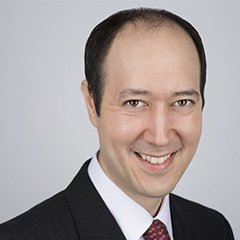Robert (not his real name) received a letter from his university. It accused him of cheating, in particular copying his essay from one which appeared on Course Hero, an online platform containing millions of essays and notes submitted by students.
Robert had never heard of Course Hero. When he looked at the essay on the website, he was surprised to recognise his own work. To clear his name, he would need to persuade the university that the Course Hero essay was his own.It was at that point that Robert sought my help – I am a barrister who specialises in academic misconduct.
Proof required
Robert was not a native English speaker. On 18th April 2021, two days before submitting his essay, he had sent it to a website for proofreading and to another website for a plagiarism check. These steps were permitted by the university. He submitted the essay on 20th April 2021.
It was our theory that Robert’s essay had been submitted to Course Hero by either the proofreader or, ironically, the plagiarism checker. Alternatively, one of these individuals may have provided the essay to a third party who then uploaded the essay onto Course Hero. Further research identified the uploader to an institution in Kenya. His Course Hero profile showed that he had submitted dozens of essays on a wide range of subjects. Contributors to Course Hero can earn benefits, such as free access or money.
We contacted the Course Hero Compliance Team and explained the situation. Course Hero removed the essay from the website and invited the uploader to challenge the decision. No challenge came. We asked Course Hero to provide the exact upload time for the essay. It took them several days to reply.
In the meantime, we noted that the Turnitin report – which identifies the similarity between a student’s essay and a vast database of material – showed a very low similarity index. If Turnitin’s database contained material from Course Hero, this supported the theory that Robert’s essay existed before the Course Hero essay. Otherwise, the similarity index would have been high. We contacted Turnitin to find out if its database captured content from Course Hero. Only then would our argument be sound. The answer: “yes, as a matter of high priority”.
In Robert’s defence against the allegation, we also showed that he had a long-standing interest in the subject matter of the essay and that he had produced a draft of the essay before submitting the final version.
A few days later, Course Hero revealed the upload time of the essay: 9.04am on 21st April 2021. This was the day after Robert had submitted his assignment to the university. He could not have copied it from Course Hero.
Robert was eventually cleared of any wrongdoing by the university.
Taking care
Students should be careful about submitting their essays to third parties, even for legitimate purposes such as plagiarism checking or proofreading, and should keep clear records, including screenshots, if they do. In proving their innocence, students should think broadly about supportive evidence and, if necessary, contact relevant organisations.
Given the civil standard of proof (i.e., the balance of probabilities) and the difficulty in dislodging a university’s belief that a student has cheated, Robert may well have been found guilty of cheating without the information obtained from Course Hero and Turnitin.
Universities should also be aware that unscrupulous individuals steal students’ work to post on websites such as Course Hero – and that some students are, in fact, innocent.
*With thanks to Robert for his permission to share his story so that others may learn from it.



















Years ago I was involved in a case of self plagiarism. The student involved was carrying out an MSc part-time as a mature student. Her local authoirty employer, against her wishes, required her to do an NVQ (despite already having a degree and undertaking a masters). She used some of the same written material to complete both the NVQ and the MSc assigments, but this greated a plagiarism flag. I successfully argued as the course tutor that no action should be taken against her. The above is also a case for academics knowing their students as individuals not just student… Read more »